
Alphabetical Menu
Chronological Menu
|
Ahed's Knee 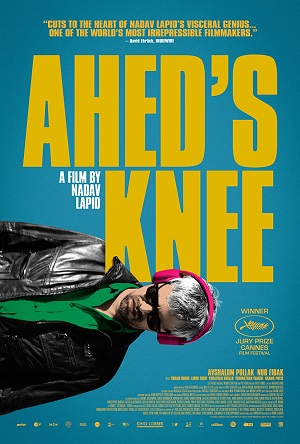 Y (Avshalom Pollak), an Israeli filmmaker, is in the process of casting an actress for his new movie, "The Knee of Ahed Tamimi." Meanwhile, he travels to a small, isolated town in the Arava Desert to screen his previous film at the public library. Yahalom (Nur Fibak), who represents the Ministry of Culture, greets him and tries to persuade him to sign a form that states which topics he's allowed to talk about at the Q&A. He wouldn't be able to talk about anything that criticizes Israel or the Israeli government. Refusing to be censored, he confronts Yahalom and argues with her. Ahed's Knee remains provocative even though the screenplay writer/director Nadav Lapid suffers from on-the-nose dialogue that tackles its political head-on. Y is cut from the same cloth as Howard Beale from Network. When he first meets Yahalom, she seems unctuous as she tries to charm him with her smile and flirtations, but he soon realizes that she has a hidden motive to get him to sign the form that would censor and dehumanize him. Upon discovering her true intentions, he's mad as hell and not going to take it anymore. What does he do with that rage? The answer won't be spoiled here, but Lapid does take the film into territory that makes Y slightly more like D-Fens from Falling Down because of the lines that he crosses to defend his freedom. Y is like a volcano waiting to erupt. How he confronts Yahaholom in the third act is shocking, as it should be, but it does go a bit over-the-top with a long rant that overstays its welcome and beats both Yahalom and the audience over the head with the words. However, Y does make interesting points and has a lot to say that provides some food for thought for critical thinkers, but the way that he expresses those thoughts and feels makes him seem like he's emotionally unstable. Does he think that yelling makes him more right than if he were to speak in a more quiet voice? .Lapid doesn't judge him, though, nor does he ask the audience to judge him. Like any human being, he has likable and unlikable qualities. So does Yahalom who appears happy and confident, but she's just as vulnerable and sensitive---and human--as Y. Avshalom Pollack gives a bravura performance as Y. He manages to capture Y's innate anger, frustrations and, most importantly, his emotional pain with conviction. Nur Fibak is also superb as she tackles a role that becomes increasingly complex. Y and Yahalom are different on the surface, but beneath the surface they have a lot of pent-up emotions. It's interesting to observe how both of them confront harsh truths. If you can imagine Mass with a lot more shouting and condescending tones, you'll get an idea of what it's like to watch Ahed's Knee. It's an agressive film--even the cinematography is quite aggressive and in-your-face with lots of close-ups and nauseating shaky cam. There's already plenty of tension within the narrative itself, so why the need for shaky cam? It feels as though the film were shot during an earthquake at times. The soundtrack is equally overbearing occasionally. The cinematography is indeed stylish, but that particular style gets in the way of the film's substance. At a running time of 1 hour and 49 minutes, Ahed's Knee is provocative, bold and searing, but often heavy-handed, on-the-nose and nauseating.
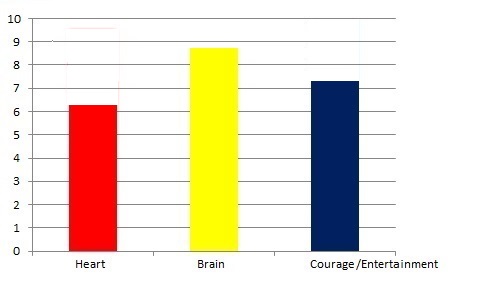 Alice  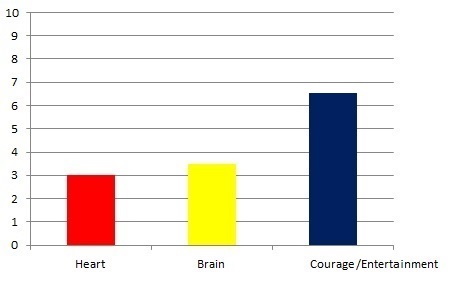 Bloody Oranges 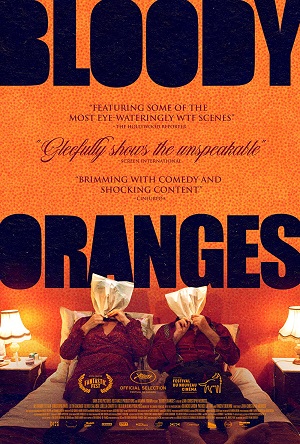 Elderly couple Olivier (Olivier Saladin) and his wife, Laurence (Lorella Cravotta), enter a dance contest in hopes of paying back their large debts. Their son, Alexandre (Alexandre Steiger), works as a lawyer who has a crooked client, Stephane (Christophe Paou), , the Secretary of Finance of France. 16-year-old Louise (Lilith Grasmug) visits a gynecologist (Blanche Gardin) who gives her sex ed before she's about to lose her virginity to her crush at a party. Stephane crosses paths with a creepy loner (Fred Blin) living in an isolated countryside house. If the sole purpose of Bloody Oranges were to show the dark side of human nature, it succeeds at that. Like Wild Tales, it follows different stories with twisted characters who have no shame in crossing boundaries, but instead of showing one story and moving on to the next, it jumps from one to the other while slowly, albeit loosely merging them all at the end. The most likeable and least amoral characters are Olivier and Laurence who don't hurt others directly, but do hurt themselves and their son indirectly because of how they eventually deal with their struggles. Just when you think you might be able to connect with Louise on an emotional level, she does something very depraved that makes it hard to like or connect with her. She also sexually abuses her crush who tells her to stop being so rough with him during her first time having sex, but she continues. The third act, which won't be spoiled here, raps up Louise's storyline in a sugar-coated and surprisingly cheesy way that's as contrived and unrealistic as a fairytale. At first, the screenplay by writer/director Jean-Christophe Meurisse, Amélie Philippe, and Yohann Gloaguen doesn't jump right into the very dark and violent elements that come into play once Stephane enters the home of the creepy loner, but you do get a taste of it during the opening scene when rude judges for the dancing competition debate whether or not one of the dancers is handicapped. That scene is wickedly funny as is the scene at the gynecologist's office. None of the characters are fleshed out enough to get to know them, and there are way too many characters, many of them vile human beings who you don't want to be around. Did I mention a taxi driver who urinates on Alexandre after he already had a bad day? Without any characters to connect with or root for, the only thing that's left is wondering how far Bloody Oranges will push the envelope. Fortunately, it does go quite far during the last 30 minutes with scenes that leave very little to the imagination, one of which goes to the same dark territory that Hard Candy does. If the filmmakers wanted the audience to be squeamish, they did a great job achieving that on a visceral level before its rushed ending that barely makes an effort to connect its interlinked stories. The performances are solid, especially that of Lilith Grasmug who impresses with her convincingly moving, breakthrough performance. The film's poignancy comes from her performance, not from the screenplay. At a running time of 1 hour and 42 minutes, Bloody Oranges is a bold, disturbing and wickedly funny glimpse of humanity's dark side, but it's ultimately too shallow to pack an emotional or intellectual punch.
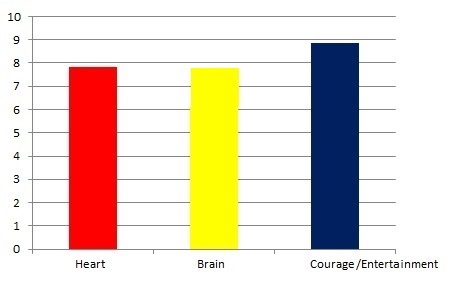 Întregalde 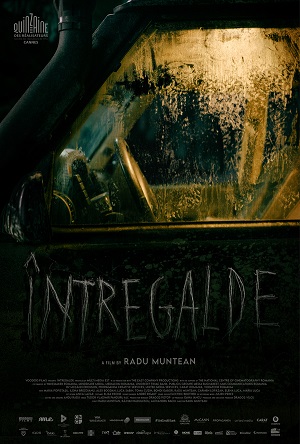 Maria (Maria Popistasu), Ilinca (Ilona Brezoianu) and Dan (Alex Bogdan) work as volunteers who deliver care packages to poor people in Romanian villages around the time of Christmas. As their SUV travels along a countryside road in the dead of winter, they cross paths with an old man, Kente (Luca Sabin), walking along the road and let him hitch a ride to a sawmill. Their car gets stuck in the mud, though, as nightfall approaches, and Kente ditches them to walk on his own to the sawmill. Întregalde has more surprises than horror films do, even though it's not a horror film per se. The screenplay by writer/director Radu Muntean, Razvan Radulescu and Alexandru Baciu plays around with the audience's imagination often while walking a fine line between drama, satire and psychological horror. If a car gets stuck in the mud in the middle of nowhere after the protagonists meet a mysterious stranger, it's easy to assume that it'll either become a thrilling, suspenseful tale about trying to survive the elements or a horror film. Întregalde does have suspense, but it's very understated. The same can be said about the horror elements which are only in the mind of the audience, especially during the nighttime scenes where you can barely see anything. What begins as a gently gripping film turns into a surprisingly moving experience about kindness, compassion and adversity. There's also some surprising moments of comic relief; this isn't a dry or pedestrian film at all. It has some wit and tongue-in-cheek humor up its sleeve. The fact that there's more to Kente than meets the eye makes for a film that's intriguing and refreshingly unpredictable. It's a concurrently fascinating and profound study of human nature, like the recent All My Friends Hate Me which also has a creepy old man who turns out to be not at all who or what you'd imagine he would be. The landscape in Întregalde becomes like a character in itself with the countryside and wintry settings adding plenty of atmosphere. Radu Muntean moves the film along at a slow, but not too slow pace, although it does take time to get used to it initially. Fortunately, he doesn't resort to shaky cam as a means of generating tension, and he trusts the audience's emotions as well as their patience. Most importantly, he trusts their imagination which is something rare these days. He avoids spoon-feeding them exposition. There are no big jump scares or any villains on screen, but some of the nighttime scenes are more palpably terrifying than many scenes in recent visceral horror films, i.e. X. The performances are natural which adds to the film's realism, and there's also no overbearing music that tells the audience how to feel. At a running time of 1 hour and 44 minutes, Întregalde is a slow-burning, unpredictable slice of psychological horror that's a lot more than just the sum of its parts.
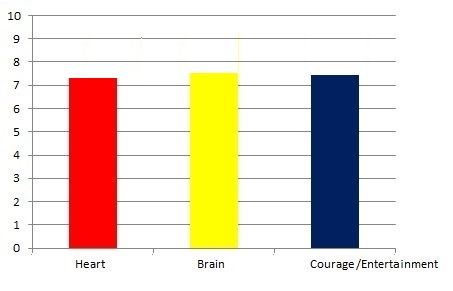 Umma 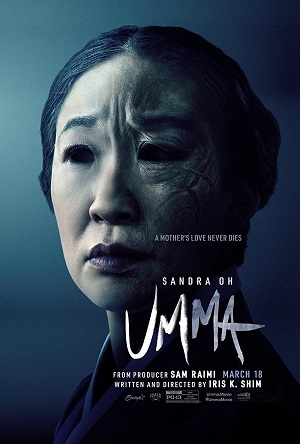 Amanda (Sandra Oh) works as a beekeeper while living off-the-grid with her daughter, Chris (Fivel Stewart). One day, Amanda's uncle (Tom Yi) arrives with the remains of her umma (mother, in Korean) whom she had been estranged from for years. Something happened between Amanda and her mother years ago that led to that estrangement and to Amanda's aversion to electricity. She suddenly starts seeing apparitions of her mother as she gradually confronts her past trauma. Umma doesn't quite work as a horror film nor as a psychological drama. The screenplay by writer/director Iris K. Shim tries to be both simultaneously, but instead falls flat. There's a darker, more profound movie lurking somewhere within the premise of Umma. Shim doesn't explore the relationship between Amanda and her mother enough, and it's no help that she withholds key exposition about what the traumatic event was until the end. Until that point, the film treads water as Amanda's mother haunts Amanda over and over. It quickly becomes a repetitive experience that lacks thrills, chills and suspense. equally underexplored is the relationship between Amanda and her own daughter, Chris, who's applying to college. Chris wakes up one morning noticing that someone wrote all over her college application. Could Amanda have done it? Or maybe the ghost of Amanda's mother? Either way, it doesn't amount to any shocking revelations. Then there's an undercooked subplot involving the blossoming friendship between Chris and River (Odeya Rush), the daughter of Amanda's friendly neighbor, Danny (Dermot Mulroney). Their scenes feel just as contrived as the scene between Chris and her mother. When the third act finally arrives, it's too rushed as though the Shim were too afraid to dig deeper into Amanda's emotional pain and to show how to heal from it. Amanda's character arc is simply hard to believe. You don't get a real sense that Amanda is undergoing an emotional journey which couldn't at least grounded the film in some emotional depth.
The cinematography is decent, though, with a few impressive shots, i.e. one where the camera is upside down and slowly spinning. There's also a visually striking shot of bees swarming on a window. The bees provide an interesting metaphor that, again, remains underexplored. The music score is intrusive while telling the audience how to feel when something spooky happens. Even Hereditary has more palpable scares and heartfelt scenes than Umma. It has a premise that sounds like it could be "elevated horror", but Iris K. Shim squanders that opportunity. Sandra Oh gives a fine performance, though, but the stilted screenplay doesn't help to breathe life into her role. The best thing that Umma has going for it is its brief running time of 84 minutes. If it were 2 hours long, it would've been a chore to sit through, but at under 90 minutes, it's just harmless, shallow and dull.
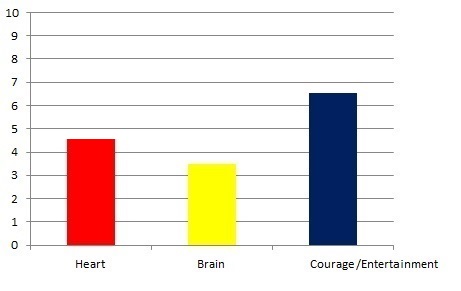 X  In 1979, a filmmaking cast and crew travel to rural Texas to film a porno. They include film director, RJ (Owen Campbell), boom operator Lorraine (Jenna Ortega), producer Wayne (Martin Henderson), and the actors, Maxine (Mia Goth), Bobby-Lynne (Brittany Snow), and Jackson (Scott Mescudi). Their house is located on the farm of an elderly couple, Howard (Stephen Ure) and Pearl (Mia Goth, in lots of prosthetics), who terrorize them.
Everything that happens in X can be easily predicted from the first thirty minutes because the screenplay by writer/director Ti West telegraphs most of the forthcoming events, but it's still entertaining and even a bit terrifying despite the lack of surprises. He opens the film with a brief glimpse of the murder scene before flashing back to show how the victims ended up there and what happened to them. The villains are obvious from the get-go once the porno cast and crew meet Howard and Pearl. A house in the middle of nowhere? A creepy, grumpy elderly couple? Of course something bad has to happen there. Of course the elderly couple will end up being the villains. An alligator surfaces in a nearby lake? Of course it will end up killing someone later on. A board with a sharp nail sticking out of it is on the floor of a barn where one of the characters walks barefoot on? Of course, the nail will get stepped on. Someone sees a whole in the barn and looks through it with one of their eyes in the middle of the night? I think you know what's about to happen to their eye. Ti West does his best to make Pearl a villain who has serious issues with her insecurity, jealousy and neediness. She's also just plain off her rocker. How precisely she turned out to be this way remains a mystery as does the answer to the question of whether or not she had killed other people before. West generates a modicum of suspense not from whether or not Pearl will kill the victims, but when. The victims are far from saints as well. Wayne tries to coerce Lorraine to become a porn star, and no one treats the elderly couple with much respect. When the violence ensues inevitably, Ti West leaves nothing to the imagination. If all you're looking for in a horror film are cool kills with plenty of gore, X won't disappoint you. The kills are even more grisly than in the Scream series. West makes great use of cinematography and lighting to create a creepy atmosphere. One particularly terrifying shot is the giant shadow of Pearl in the barn. He turns her into a monster at that moment. Also, the prosthetics and make-up that transformed Mia Goth into Pearl look so convincing that you won't recognize Mia Goth at all. West also does a pretty good job of adding darkly funny comic relief; the tone of the film is almost satirical while poking fun at the genre--and porn--without going too far into satire. The humor would best be described as tongue-in-cheek and macabre, like in Midsommar. At a running time of 1 hour and 45 minutes, X is a wildly entertaining guilty pleasure, heavy on gore and creepiness, but low on surprises and plenty of telegraphing.  |